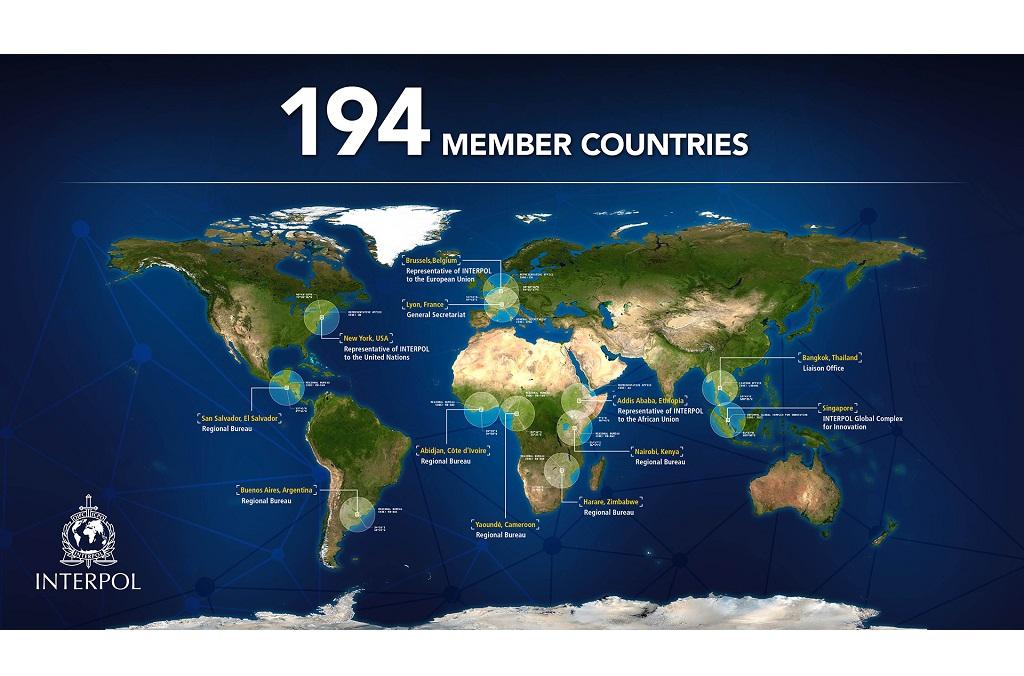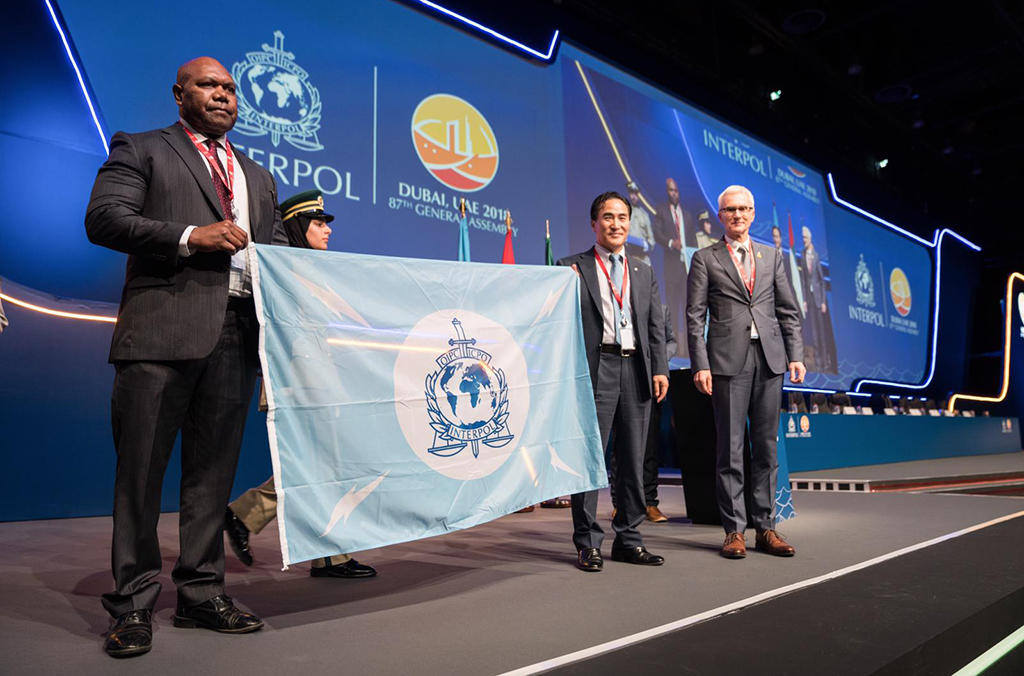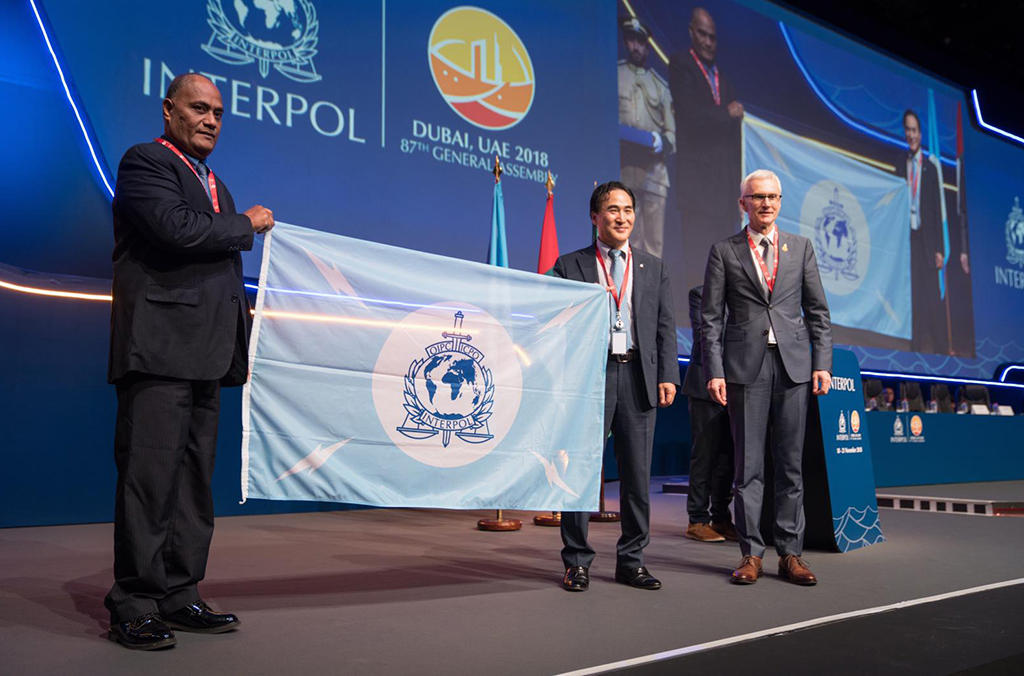DUBAI, United Arab Emirates – The INTERPOL General Assembly has voted to admit Kiribati and Vanuatu as new member countries. The membership of the world policing body now totals 194.
Each application was approved by a more than two-thirds majority vote at INTERPOL’s General Assembly, currently meeting in Dubai for its 87th annual session.
A membership application from Kosovo was rejected by the General Assembly.
The new member countries will each now establish their National Central Bureau (NCB) which acts as the single point of contact with other NCBs and the General Secretariat headquarters in Lyon, France.
NCBs are fully staffed and operated by national law enforcement bodies and operate in accordance with national legislation.
Membership of INTERPOL means national law enforcement can instantly both share and receive vital policing information from around the world across a range of crime areas including human trafficking, drug smuggling, cybercrime, vehicle crime as well as terrorism.
Through I-24/7, INTERPOL’s secure global police communications network, countries can send messages and also access multiple global databases, including on wanted persons, stolen motor vehicles, stolen and lost travel documents, fingerprints, DNA and face recognition.
Whilst the widest possible cooperation is encouraged, INTERPOL respects the sovereignty of each member country. Member countries retain full ownership of the data they share with INTERPOL and they decide with which other countries their data is shared.









